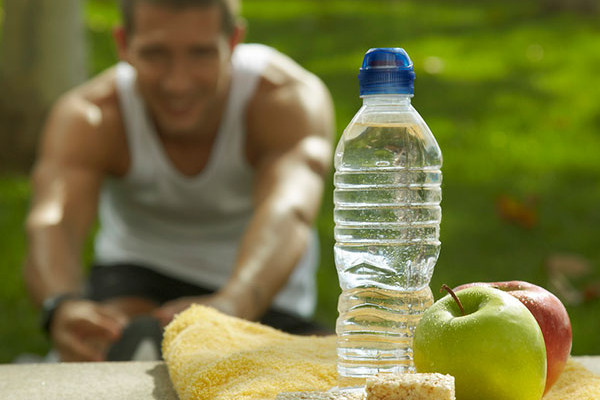What You Can Do
Focus on these areas to improve your triathlon recovery, boost performance and maintain optimal health.
Sleep: Sleep duration is critical, whether you’re talking about supporting physical or mental performance. Unfortunately, the average American doesn’t get enough of it. Sleep deficiency – and more importantly, sleep quality deficiency – is actually associated with poorer health and a higher risk for many chronic diseases. More importantly, while some processes like breathing and cardiovascular function decrease during sleep, the body steps up its recovery game during this time. One in particular, the body releases growth hormone, which helps support cell repair and growth. The magic does happen in the bedroom, but in the case it’s when you’re sleeping, not awake.
Want to improve your sleep? Create a dark environment; minimize caffeine intake later in the day; and consider taking a magnesium supplement before bed, which can have a calming effect on the body. To track how well you’re doing, smartphone apps like Sleep Time, track sleep duration and quality. Bottom line: prioritize quality sleep and you’ll be amazed at how much it improves the quality of your training and racing.
Eat Nutrient-Dense Foods: When your body is repairing itself it needs the required nutrients to fuel the process. Calories do matter to some extent, but nutrient quality is just as, if not more, important. When I first broke into endurance sports I focused mostly on the “quantity” aspect of nutrition. After a big workout I got my hands on as many carbohydrates as I could, mostly grains and fruit. A few hours later, I felt sluggish and tired. I suffered from headaches and migraines often. (And forget trying to put in another session later that afternoon.)
Fast forward to now—after a big morning workout, I feel alert, energized and ready to take on another. Headaches are extremely rare. What changed? Nutrition, quality nutrition. Goodbye refined carbohydrates and sugar, hello vegetables (dark leafy greens are a staple at every meal), healthy fats (think coconut, olive oil, cold-water fish and avocado) and quality protein, like free-range, organic eggs. This veggie scramble recipe is one of my favorites for combining all of those elements. Our bodies only recover (and therefore perform) as well as the nutrients we provide it to support the process. If you’re demanding a lot of your body, demand a lot of the nutrition you put in it.
Complete Musculo-skeletal and Soft Tissue Work – This is what most people think of when they think recovery: How can I relieve soreness, decrease inflammation, and get back to training as soon as possible? Training and racing breaks our muscles down, literally. When a muscle is subject to a significant load, small micro tearing occurs. This is what sets off the physiological cascade of repair, which is a good thing. It requires time though, and it’s during this time of repair that the muscle gets stronger. Scar tissue can build up as a result, which can be problematic if not given some TLC. Regular use of a foam roller can make a huge difference. It also helps with range of motion and injury prevention by acting on things called facial adhesions.
How Much Is Enough?
Hopefully I’ve convinced you that recovery is important, but how much is enough? Put another, more practical way, if I’m a triathlete or runner, how many days a week should I take off? When do I know my body is prepared to resume training? I’m a big believer in one dedicated recovery day per week, but I think a combination of “feel” and “data” are helpful guides. A simple and easy way to gauge fatigue is by regularly tracking resting heart rate. Measure your heart rate every morning immediately upon waking. If it’s more than 10-12 beats above normal, consider taking the day off, or at least scale back on the intensity and duration of your workout that day. Your body will thank you in the long run.
Focus on recovery if you want to maximize your performance, whether in triathlon, marathon, or some other endurance or fitness event. You’ll be surprised at how doing less can actually mean you’re accomplishing more.

